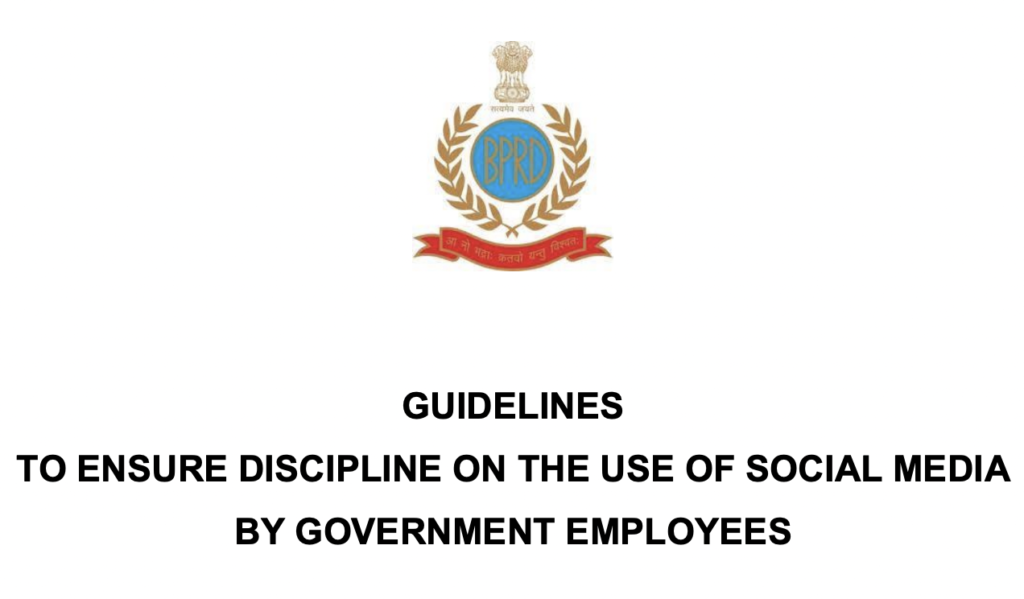The Maharashtra government has ordered employees to follow new social media guidelines that ban employees from criticizing currently, or previously, existing government policies on any social media platform. Employees who violate this guideline can face disciplinary action under the Maharashtra Civil Service Conduct Rules, 1979.

The guidelines specify the following restrictions on government employees:
They will create separate social media accounts for personal and official use.
Employees must avoid using any applications banned by the state or central government.
They must refrain from posting any objectionable or stereotypical posts that incite hatred.
Confidential documents or official communications cannot be posted on their site unless they receive prior approval.
Employees will transfer their official social media accounts to their successors at retirement or transfer.
What content should government employees be discouraged from posting online?
The instructions specifically discourage employees from posting content that contains:
1. Their title or photos of the government logo under any circumstances.
2. Their uniform.
3. Official properties (e.g. office buildings).
4. Government Vehicles.
What are allowable applications for government employees under this directive?
Employees can still use communication applications, including WhatsApp and Telegram, for official coordination purposes, unless the use of these apps is specifically prohibited by either the state government or the Centre.
Who do the new social media guidelines apply to?
The new guidelines apply to:
* State government employees and officers.
* Local body employees.
* Contract staff.
* Employees of public sector undertakings that are controlled and run by the state government.
What could employees face for not following the guidelines?
Failure to comply with these guidelines could result in disciplinary action as stipulated by the Maharashtra Civil Service Conduct Rules of 1979. These guidelines will stress the need to show professionalism in one’s online conduct.
The situation as described, in which government officials in Maharashtra are banned from criticizing government policy online, brings many issues with respect to free speech, digital discipline, and “silent dictatorship.” While the specific guidelines mentioned are stated as a hypothetical situation (or future possibility) in the prompt, we must evaluate implications as though these rules were to actually be implemented.
It has been widely acknowledged that the discomfort is both manifold and ubiquitous.
First, it chills free speech and expression – this is fundamental in all democratic political societies. All citizens, including government employees, should generally be entitled to express their opinions even if they are critical of government policy, unless their communications are in violation of current legislation relating to defamation, incitement, or the disclosure of classified information. This restriction can create a culture of self-censorship, whereby employees shy away from making legitimate comments or observations about government functioning for fear of government reprisal.
Second, it impedes transparency and accountability. Government employees often have access to information on how policies work and how effectively they work. Disallowing them to speak out, including in public spaces, can curtail the potential for some of the inefficiencies, corruption or maladministration to be exposed in aspects of programming. By not allowing whistleblowing like this means there can be festering problems that can remain unaddressed – to the detriment of future. The public image of the government easily becomes determined on citations of three different villain roles; Sprung true, untruths refuted, and the display of emotions under pressure in governmental roles. It is also pertinent to recall that the public needs information, from whatever source available, including from government employees, to know how things work, for purposes of understanding how they hold their elected officials accountable.
Thirdly, it could limit innovation and useful feedback. People within day-to-day working roles usually have the best insight into the actual challenges with a policy and the unintended consequences. If they cannot express criticism or even constructive criticism, the government would lose an accessible feedback loop that might spark improvements in a policy. This can lead to less effective and less responsive government.
Fourthly, it contributes to a two-tiered system of citizenship. This means that government employees have fewer rights to free expression than other citizens, which is discriminatory and may undermine the organizations’ obligation to equality before the law; the perspective that the acceptance of a government job means you inherently surrender fundamental rights is a contested viewpoint in the legal and human rights sphere.
Fifth, the concept of “criticism” may be subjectively defined, and it could be abused. It can be unclear what qualifies as criticism in contrast to constructive criticism or factual reports. This lack of clarity can lead to inconsistent application and cause someone to harass employees. More importantly, this ambiguity can obviously contribute to the chilling effect.
Lastly, such a policy could damage public trust in government. If people see that government employees are silenced, they may assume their government is hiding something, unwilling to be examined, or perhaps both. The loss of trust can have long-term negative implications for democratic institutions.
The debate would shift to finding an appropriate balance between the government’s desire for discipline and usefulness, compared to the common law rights of employees and the public’s right to information and public accountability.
Ref:
- Freedom of Speech and Expression in India. [ https://www.legalserviceindia.com/legal/article-247-freedom-of-speech-and-expression-in-india.html]
- The Chilling Effect of Censorship. [ https://www.eff.org/issues/free-speech/chilling-effect]
- Whistleblower Protection in India. [ https://www.transparencyindia.org/whistleblower-protection-in-india/]
- Importance of Feedback in Governance. [ https://blogs.worldbank.org/governance/importance-feedback-governance]
- Equality Before Law. [ https://indiankanoon.org/doc/1042795/]
- Defining Criticism: A Legal Perspective. [ https://harvardlawreview.org/]
- Public Trust in Government. [ https://www.pewresearch.org/]
- Human Rights and Freedom of Expression. [ https://www.ohchr.org/]
- Role of Trade Unions in Protecting Employee Rights. [ https://www.ilo.org/]
Also Read:
